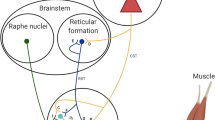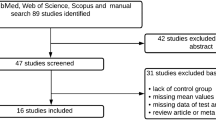Abstract.
The reflex loops initiated by the activation of muscle afferents are altered by a reduction of the oxygen supply. This has been shown in different mammalian species under experimental conditions of acute or chronic hypoxaemia. In the present study in rats, we compared the effects of acute and chronic hypoxaemia on the activity of afferents from the tibialis anterior muscle to investigate the existence of possible adaptive mechanisms to hypoxaemia. The activity in groups I and II (mechanosensitive) and groups III and IV (mechano- and mostly chemosensitive) muscle afferents was recorded under conditions of normoxaemia and acute and chronic hypoxaemia. Chronic hypoxaemia was achieved by exposing the rats for 45 consecutive days to a gas mixture containing 10% oxygen in nitrogen, whereas acute hypoxaemia was limited to a 1-h exposure to a 10% oxygen mixture. Different test agents: muscle stimulation (MS), arterial injection of KCl or lactic acid and tendon vibrations, were used to activate muscle afferents. Both acute and chronic hypoxaemia suppressed the post-MS activation of groups III and IV muscle afferents and significantly depressed the response of these afferents to KCl and lactic acid. The pattern of response of mechanosensitive afferents to mechanical tendon vibration was similar under the three conditions but chronic hypoxaemia significantly reduced the response to 10–50 Hz vibrations. We conclude that inhibitory effects on muscle metabosensitive afferents occurred in the first minutes following acute hypoxaemia and was prolonged with chronic hypoxaemia. Our data also suggest that chronic hypoxaemia depresses mechanosensitive muscle afferents. This may explain the observation that sensorimotor control of skeletal muscles is often markedly impaired in hypoxaemic humans.
Similar content being viewed by others
Author information
Authors and Affiliations
Additional information
Electronic Publication
Rights and permissions
About this article
Cite this article
Dousset, E., Decherchi, P., Grelot, L. et al. Comparison between the effects of chronic and acute hypoxaemia on muscle afferent activities from the tibialis anterior muscle. Exp Brain Res 148, 320–327 (2003). https://doi.org/10.1007/s00221-002-1297-0
Received:
Accepted:
Issue Date:
DOI: https://doi.org/10.1007/s00221-002-1297-0




